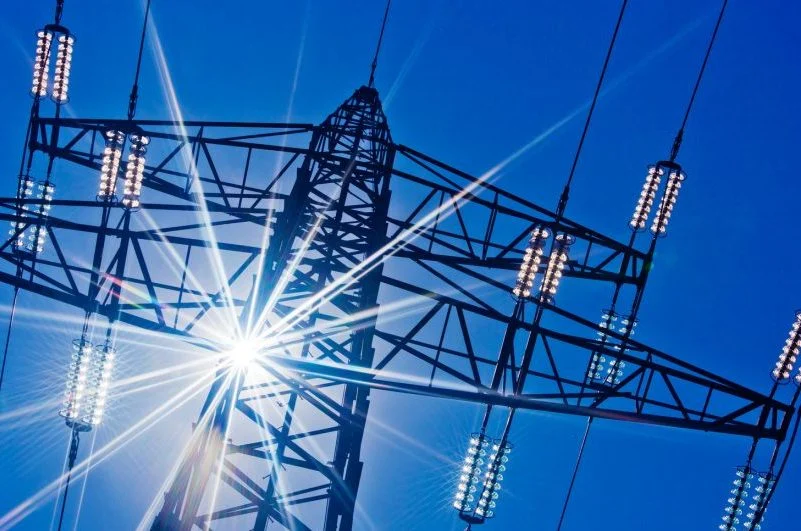Morocco’s electricity production increases 6.5% through April 2025 – The North Africa Post

Report on Morocco’s Electricity Production and Trade: Emphasis on Sustainable Development Goals (SDGs)
Overview of Electricity Production Growth
Morocco’s national electricity production increased by 6.5% during the first four months of 2025, accelerating from 3% growth recorded in the same period in 2024, according to the Financial Studies and Forecasts Directorate (DEPF). This growth aligns with SDG 7: Affordable and Clean Energy, reflecting progress towards ensuring access to reliable and sustainable energy.
Key Drivers of Production Growth
- Private Electricity Production: Increased by 8.1%, demonstrating the role of private sector investment in expanding energy capacity.
- National Electricity and Potable Water Office (ONEE): Achieved 10.5% growth, highlighting effective public sector contributions.
This combined expansion underscores the effectiveness of Morocco’s diversified energy generation strategy, supporting SDG 9: Industry, Innovation and Infrastructure by fostering resilient infrastructure and innovation in energy production.
Renewable Energy Production Trends
Renewable energy production under Law 13-09 contracted by 13.9% after a substantial growth of 38.6% in the previous year. This decline highlights:
- The variable nature of renewable energy output.
- Ongoing challenges in maintaining consistent clean energy generation.
Despite the contraction, the focus on renewable energy remains critical for achieving SDG 13: Climate Action and reducing carbon emissions.
Electricity Trade Balance Analysis
- Import Volumes: Decreased by 4.4% through April 2025, reversing a 15.1% increase from the previous year.
- Export Volumes: Declined overall by 14.4%, but experienced significant growth in March and April 2025 with increases of 125.9% and 27.6%, respectively.
The recent export growth suggests a strengthening of Morocco’s position as a regional electricity exporter, contributing to SDG 8: Decent Work and Economic Growth by enhancing economic opportunities through energy trade.
Electricity Demand and Energy Transition
Net electricity demand increased by 5.3% through April 2025, compared to 3% growth in the same period of 2024. This increase reflects sustained economic activity across residential, commercial, and industrial sectors, supporting SDG 11: Sustainable Cities and Communities by meeting growing urban and industrial energy needs.
Conclusion: Progress Towards Sustainable Energy Goals
- Morocco continues to balance traditional energy generation with renewable sources, maintaining grid stability.
- The country is developing its energy infrastructure to meet rising domestic demand.
- Efforts position Morocco as a key electricity provider in the North African region, advancing multiple SDGs including affordable energy, climate action, and economic growth.
1. Sustainable Development Goals (SDGs) Addressed in the Article
- SDG 7: Affordable and Clean Energy
- The article discusses Morocco’s national electricity production growth, renewable energy production, and energy trade balance, directly relating to ensuring access to affordable, reliable, sustainable, and modern energy.
- SDG 9: Industry, Innovation, and Infrastructure
- References to Morocco’s energy infrastructure development and diversification strategy connect to building resilient infrastructure and promoting sustainable industrialization.
- SDG 13: Climate Action
- The focus on renewable energy production and challenges in maintaining clean energy generation relate to combating climate change and its impacts.
- SDG 8: Decent Work and Economic Growth
- Increased energy consumption linked to sustained economic activity across sectors ties into promoting sustained economic growth.
2. Specific Targets Under the Identified SDGs
- SDG 7 Targets
- 7.1: Ensure universal access to affordable, reliable, and modern energy services.
- 7.2: Increase substantially the share of renewable energy in the global energy mix.
- 7.3: Double the global rate of improvement in energy efficiency.
- SDG 9 Targets
- 9.1: Develop quality, reliable, sustainable, and resilient infrastructure, including regional and transborder infrastructure.
- 9.4: Upgrade infrastructure and retrofit industries to make them sustainable.
- SDG 13 Targets
- 13.2: Integrate climate change measures into national policies, strategies, and planning.
- SDG 8 Targets
- 8.1: Sustain per capita economic growth in accordance with national circumstances.
3. Indicators Mentioned or Implied in the Article
- Electricity Production Growth Rates
- Percentage increase in national electricity production (6.5% growth in 2025).
- Growth rates in private electricity production (8.1%) and ONEE production (10.5%).
- Renewable Energy Production
- Percentage change in renewable energy production (-13.9% decline after 38.6% growth).
- Electricity Trade Balance
- Import and export volume changes (imports down 4.4%, exports down 14.4% overall, with significant monthly export increases).
- Net Electricity Demand
- Percentage increase in net electricity demand (5.3%).
- Energy Infrastructure Development
- Implied through references to diversification strategy and infrastructure development, which can be measured by infrastructure capacity and modernization indices.
4. Table of SDGs, Targets, and Indicators
| SDGs | Targets | Indicators |
|---|---|---|
| SDG 7: Affordable and Clean Energy |
|
|
| SDG 9: Industry, Innovation, and Infrastructure |
|
|
| SDG 13: Climate Action |
|
|
| SDG 8: Decent Work and Economic Growth |
|
|
Source: northafricapost.com








